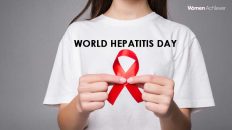Obesity may fuel health crises and this can lead to feelings of rejection, shame, guilt, mental health problems
Low- and middle-income countries, including India, are likely to be more affected by the obesity epidemic, according to a survey. This is something public health specialists in the country have already warned about. Obesity may fuel to health crisis as it is defined as abnormal or excessive fat accumulation in the body.
Controlling the obesity epidemic needs a concerted effort from policymakers and the masses. Instead, we are seeing actions in the opposite directions – mushrooming of fast-food outlets, bombardment by advertisements about packaged food, non-availability of parks and exercise facilities, problems of outdoor exercises for women, and the absence of food labeling, to name a few setbacks.
The rise in obesity may fuel the health crisis and would cause a surge in non-communicable diseases, chiefly diabetes, heart disease, stroke, and cancer. At a high-level United Nations meeting in 2011, governments had committed to taking measures to prevent and treat non-communicable diseases. As part of this framework, obesity was identified alongside unhealthy diets as an important risk factor for NCDs
Subsequently, a target to ‘halt the rise in obesity at 2010 levels by 2025’ was set, with a similar target also decided for childhood obesity. However, the report says, the countries are catastrophically off-track on these targets. Indeed, countries are moving away from, rather than towards the targets, as levels of obesity may fuel the health crisis and continue to rise. This is of particular concern in low- and middle-income countries, where the greatest number of people with obesity now live and where health systems and healthcare professionals are severely underprepared to effectively manage and treat obesity and its consequences.
It had been seen during Covid-19 how obesity predisposes a person to complications. It is true for other diseases too, including heart and kidney diseases and cancer, saying there was a need to raise awareness about the ill-effects of obesity and ways to prevent it.
One of the main causes of obesity may fuel to health crisis as it increased the intake of energy-dense foods that are high in fat and sugars. Obesity can also be hereditary. Dr. Umesh Kapil, president, of the Epidemiological Foundation of India, said the consumption of high-calorie diets has increased even as physical activity levels have declined, especially among children. The government has taken initiatives such as the Fit India movement and Eat Right campaign, but much more needs to be done to control the obesity epidemic.
Political and public health leaders need to recognize the gravity of obesity may fuel to health crisis challenge and act. The numbers in our report are shocking, but what is even more shocking is how inadequate our response has been. Everyone has a basic right to prevention, treatment, and management access. Now is the time for a joined-up, decisive, and people-centered action to turn the tide on obesity.
What are some health risks of overweight and obesity?
Type 2 diabetes:
Type 2 diabetes is a disease that occurs when your blood glucose, also called blood sugar, is too high. About 8 out of 10 people with type 2 diabetes are overweight or have obesity.8 Over time, high blood glucose leads to problems such as heart disease, stroke, kidney disease, eye problems, nerve damage, and other health problems.
High blood pressure:
High blood pressure, also called hypertension, is a condition in which blood flows through your blood vessels with a force greater than normal. High blood pressure can strain your heart, damage blood vessels, and raise your risk of heart attack, stroke, kidney disease, and death.
Stroke:
Stroke is a condition in which the blood supply to your brain is suddenly cut off, caused by a blockage or the bursting of a blood vessel in your brain or neck. A stroke can damage brain tissue and make you unable to speak or move parts of your body. High blood pressure is the leading cause of strokes.
Sleep apnea:
Sleep apnea is a common disorder in which you do not breathe regularly while sleeping. You may stop breathing altogether for short periods. Untreated sleep apnea may raise your risk of other health problems, such as type 2 diabetes and heart disease.
Heart disease:
Heart disease is a term used to describe several problems that may affect your heart. If you have heart disease, you may have a heart attack, heart failure, sudden cardiac death, angina NIH external link, or an abnormal heart rhythm. High blood pressure, abnormal levels of blood fats, and high blood glucose levels may raise your risk for heart disease. Blood fats also called blood lipids, including HDL cholesterol, LDL cholesterol, and triglycerides.










Add comment